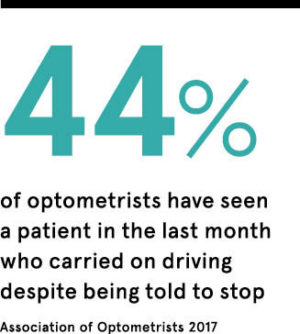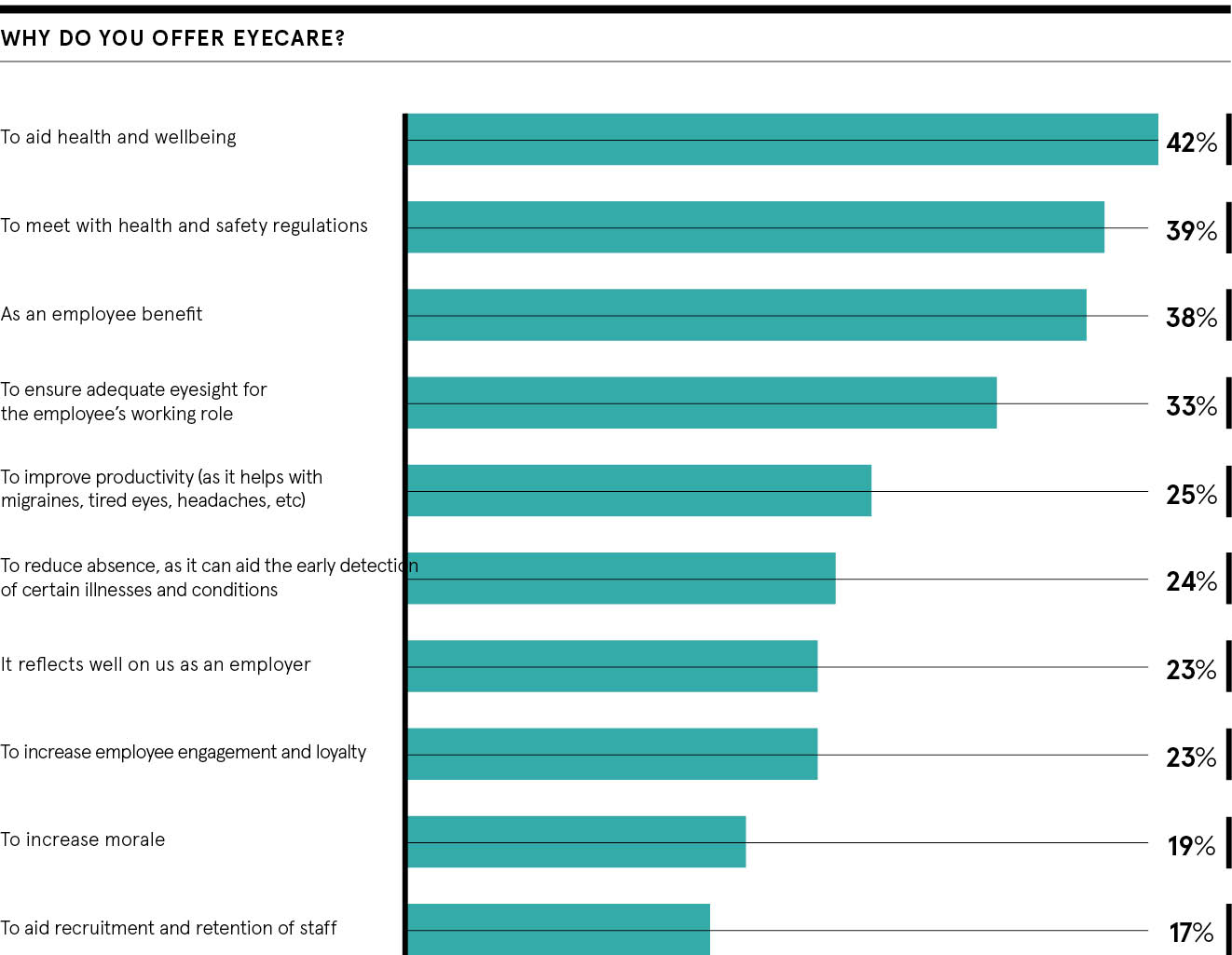A staff eye health scheme can improve productivity, reduce absenteeism, promote wellbeing across a company and translate into balance-sheet benefits, which are particularly welcome in tough trading conditions.
But, according to studies by Specsavers, around one third of employers offer no eye testing for staff even though 89 per cent of their workers are classed as screen users, who might need and benefit from wearing glasses.
“It is a requirement to offer eye tests to staff and it makes economic sense as it leads to better productivity, retention and loyalty,” says Jim Lythgow, director of strategic alliances at Specsavers Corporate Eyecare.
“Employees who are struggling with their eyes could find their performance at work suffering, and that can be hugely frustrating for them and detrimental to the business.
“Many employers are missing a trick by not providing eyecare. They may well be flouting health and safety rules, and their employees will not be receiving the many associated health and wellbeing advantages that come with an eye test.”
 Employers are required by law to arrange for eye tests for users of display-screen equipment that request one and must provide spectacles if they are prescribed for screen use. Work tasks are now dominated by computer, tablet and smartphone use across many professions.
Employers are required by law to arrange for eye tests for users of display-screen equipment that request one and must provide spectacles if they are prescribed for screen use. Work tasks are now dominated by computer, tablet and smartphone use across many professions.
“You would struggle to find a profession that doesn’t involve spending less than an hour or two on a screen, which is the level the Health and Safety Executive sets for employers to monitor,” adds Mr Lythgow.
“Employers’ awareness of their responsibilities is lower than it should be at a time when, with an ageing population and an ageing work population, that responsibility is even higher.
“Eyecare can support productivity as it helps with more minor ailments like migraines, tired eyes and headaches, all of which can reduce an employee’s efficiency. But an eye test can also pick up the early symptoms of a number of conditions such as age-related macular degeneration, high blood pressure and even tumours.”
Employers also have responsibility for helping maintain the eyesight of any staff members who drive as part of their jobs. The amount of time spent on the roads is increasing with the Department for Transport recording 324 billion vehicle miles in 2016–17, an increase of 20 per cent of the previous five years and a jump of 70 per cent from 1997. Taxis and cars account for 253 billion miles, up 1.5 per cent over the last three years.
Many employers are missing a trick by not providing eyecare
“More and more trade is on the road now, particularly with home delivery, so employers have a duty of care to their staff and to other road users to look after their drivers’ eyesight,” says Mr Lythgow. “Specsavers provides more than 500,000 employee eye tests every year through its Corporate Eyecare scheme, and the benefits for the employee and the company are always positive.”
Specsavers operates an efficient and cost-effective pre-paid voucher scheme for companies so their staff can get a convenient eye test at one of the company’s 750-plus stores and get their prescription swiftly.
The company, which carries out ten million sight tests in the UK every year, has invested heavily in technology so eye tests pick up sight issues and alert for more insidious and often asymptomatic eye conditions. Problems such as glaucoma and diabetic retinopathy, which can cause blindness, can be treated if diagnosed early, so staff can retain their jobs and remain productive.
Recent Specsavers’ research reported that only 52 per cent of companies and organisations provided eyecare at work. More than 25 per cent of employers surveyed said they offered eyecare to improve productivity, while a significant 24 per cent provided eye tests to reduce absence.
“We have seen a great increase in employers’ understanding of eyecare as a valued benefit in itself and as part of a bigger picture of preventative health solutions,” says Mr Lythgow. “We are working to help make the most of this trend into as many businesses and organisations as possible by making employers and employees aware of the much wider benefits of eyecare, such as the detection of serious health conditions, glaucoma or symptoms of cardiovascular disease.
“Eyecare is essential to health and wellbeing, and we are delighted that so many employers are taking this enlightened view.
“For relatively little cost, you can protect employee eyesight. It will promote loyalty and can only benefit your bottom line.”
For more information please visit specsavers.co.uk


